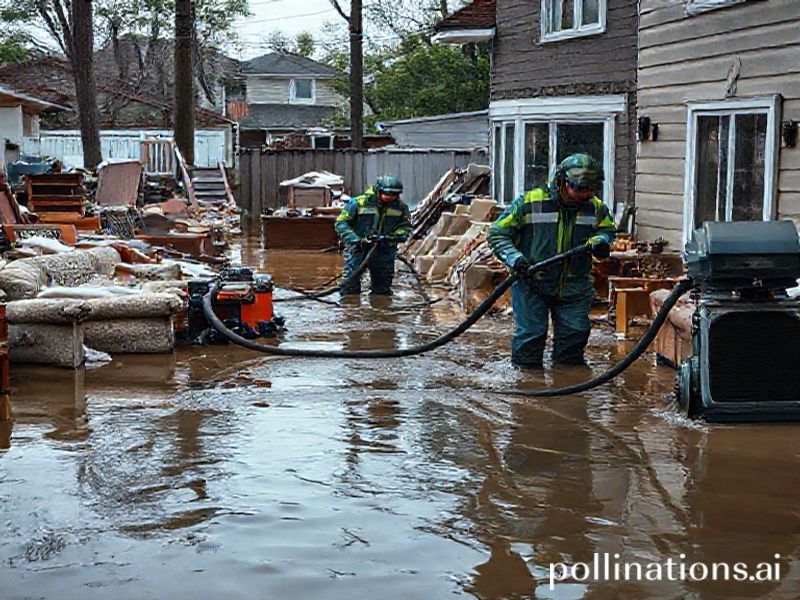Flood Restoration: Why This Trending Topic is Making Waves Globally
# When the Water Recedes: Why Flood Restoration is Trending Globally
In a world where the weather seems to be channeling its inner drama queen, flood restoration has become the unexpected star of global trends. From social media feeds to news headlines, the aftermath of floods and the subsequent restoration efforts are capturing our collective attention. But why is this topic making waves (pun intended) across the globe? Let’s dive in.
## The Cultural Context: Mother Nature’s Plot Twist
Mother Nature has been serving up some serious plot twists lately. With climate change cranking up the heat, extreme weather events are becoming as common as memes about avocado toast. Floods, in particular, are making a splash (again, pun intended) in regions that are both familiar and unexpected.
In the U.S., we’ve seen everything from Hurricane Ida’s devastating impact on New York City to the unexpected flooding in Death Valley, a place so dry it’s practically a metaphor for existential dread. Meanwhile, Europe is still reeling from the catastrophic floods that swept through Germany and Belgium earlier this year, and China is grappling with its own deluge of troubles.
As these events unfold, the internet has become a digital town square where people share stories, resources, and memes to cope with the chaos. Flood restoration, once a niche topic, has become a global conversation.
## The Social Impact: From Hashtags to Hands-On Help
The social impact of flood restoration is as profound as it is far-reaching. On one hand, there’s the immediate human cost: displaced families, lost livelihoods, and the heart-wrenching task of salvaging what’s left. On the other hand, there’s the inspiring outpouring of support from communities and strangers alike.
Social media has played a pivotal role in mobilizing relief efforts. Hashtags like #FloodRelief and #HelpEachOther have become rallying cries, connecting those in need with those eager to help. From crowdfunding campaigns to volunteer drives, the internet has become a powerful tool for turning empathy into action.
But it’s not all sunshine and rainbows (literally, in this case). The digital age has also brought its share of challenges. Misinformation can spread as quickly as the floodwaters, and the 24/7 news cycle can turn relief efforts into a spectacle, sometimes overshadowing the real, ongoing struggles of those affected.
## The Significance: Why Flood Restoration Matters
So, why should you care about flood restoration? Beyond the obvious humanitarian concerns, there are a few reasons this topic is significant on a global scale.
First, it’s a stark reminder of the realities of climate change. Floods aren’t just “acts of God” anymore; they’re increasingly the result of human activity. As the planet warms, the atmosphere holds more moisture, leading to heavier rainfall and more frequent flooding. Understanding and addressing this issue is crucial for our collective future.
Second, flood restoration is a testament to human resilience. In the face of devastation, communities come together to rebuild, to support one another, and to find hope in the midst of chaos. It’s a powerful reminder of our capacity for compassion and our ability to bounce back.
Finally, flood restoration is a global issue. It doesn’t respect borders or boundaries. Whether it’s a flood in Germany, a hurricane in the U.S., or monsoon rains in India, the aftermath and the restoration efforts resonate with people worldwide. In an increasingly interconnected world, what happens in one corner of the globe can inspire action in another.
## The Bottom Line
Flood restoration is more than just a trending topic; it’s a mirror held up to our world, reflecting both our vulnerabilities and our strengths. As the weather continues to throw us curveballs, understanding and supporting flood restoration efforts is not just a kindness—it’s a necessity.
So, the next time you see a story about flood restoration trending, take a moment to engage, to share, or even to donate. Because in the end, we’re all in this together, and every little bit helps.







